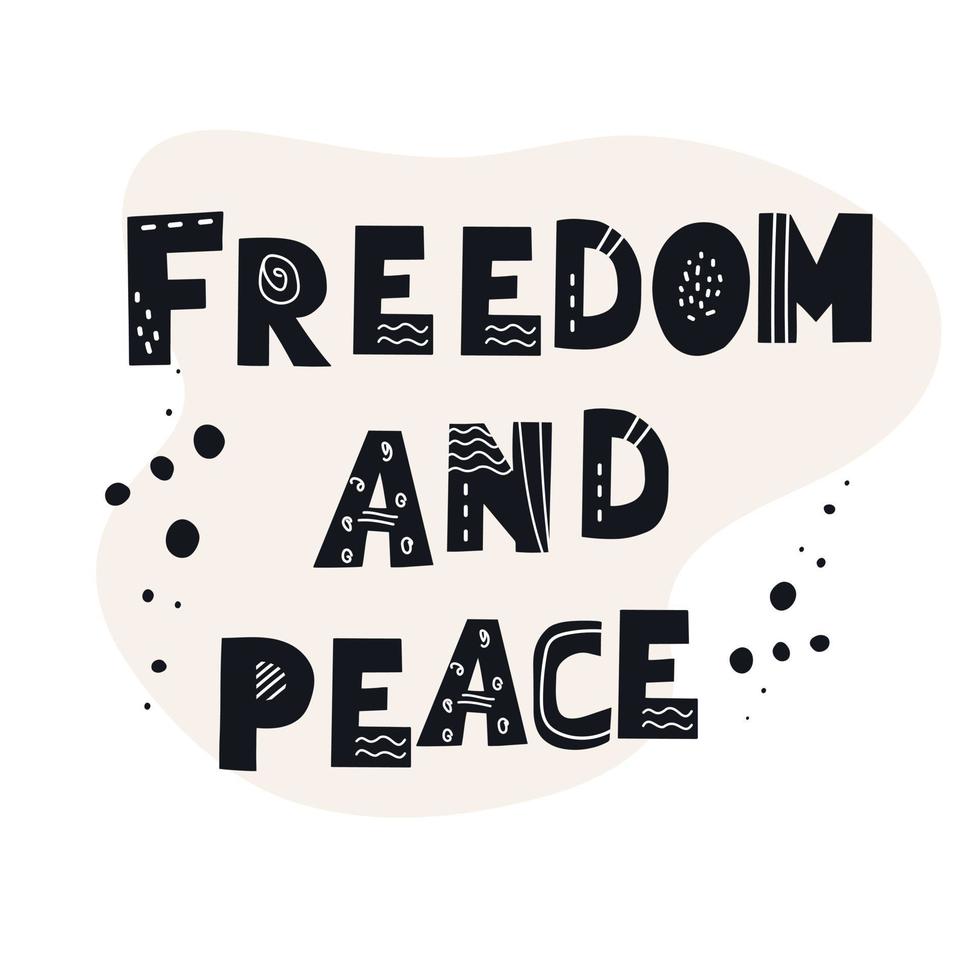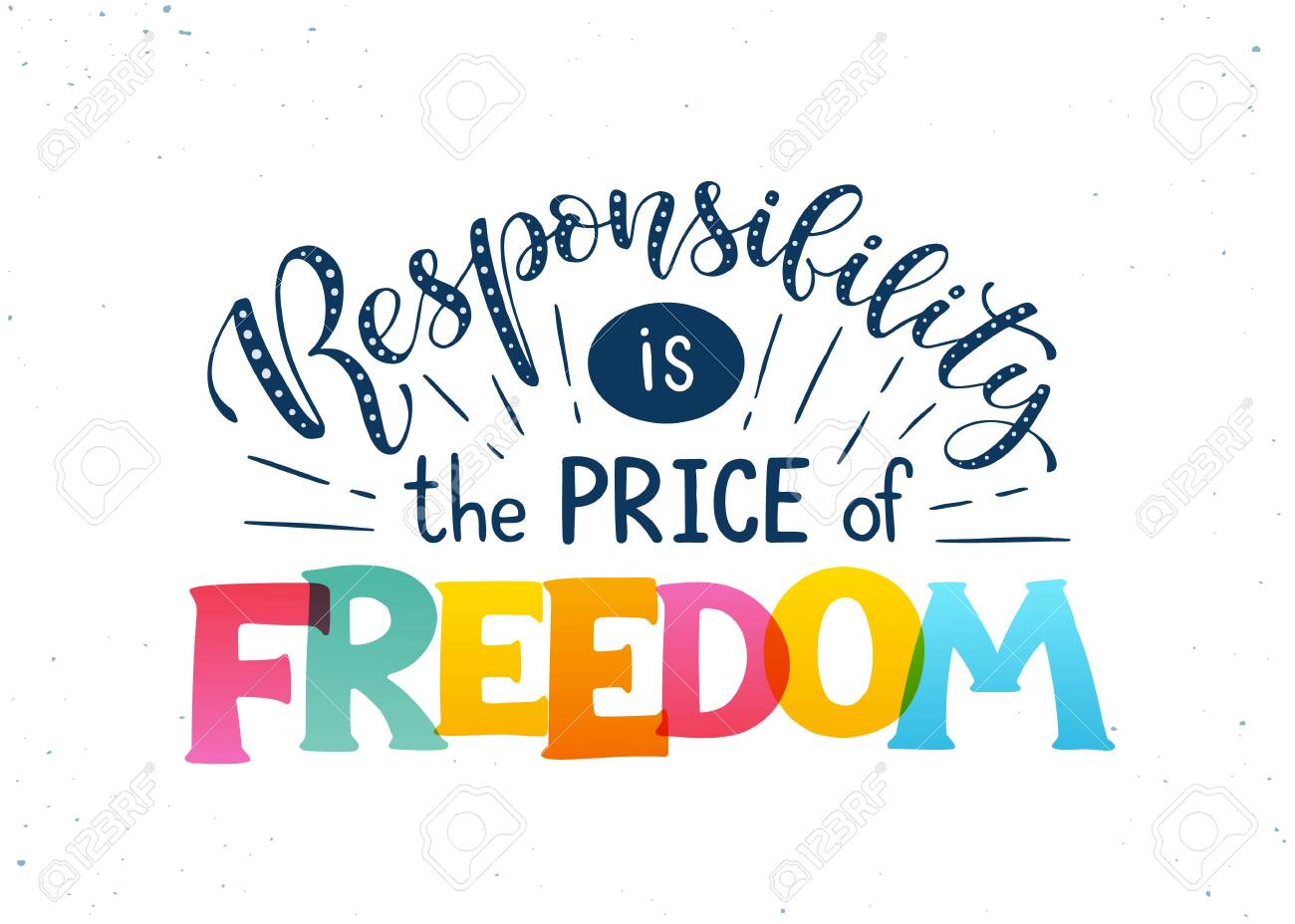Let’s explore the importance of using freedom with care and purpose across various aspects of life. Emphasizing the significance of focusing on goals rather than strict rules, we advocate for nurturing responsible decision-making guided by heart and commonsense. From parenting to workplace dynamics, civic engagement, and everyday interactions, we stress the value of instilling values and pursuing objectives that align with personal and communal goals. Through anecdotes and examples, we illustrate the power of empathy, collaboration, and responsible action in fostering a society where freedom is wielded purposefully to achieve collective well-being.

The intended readers for this article encompass a broad spectrum of individuals, including parents, children, corporate workers, citizens, and anyone seeking to navigate the balance between freedom and responsibility. For parents, the guide offers strategies for nurturing responsible decision-making in their children while emphasizing the importance of setting goals and cultivating empathy. Children benefit from learning about the value of freedom and how to use it purposefully to achieve personal and societal goals. Corporate workers can apply the principles of autonomy and accountability in their professional lives, contributing to a positive workplace culture focused on shared objectives. Citizens gain insights into exercising their rights with care and contributing to their communities through civic engagement. Overall, this guide serves as a practical resource for individuals from diverse backgrounds, providing them with actionable advice and examples to navigate life’s challenges while upholding the principles of responsible freedom.

I. Introduction
A. Introduction to the concept of using freedom with care and purpose
Freedom, though cherished, is not an invitation for recklessness. It’s a canvas upon which we paint the tapestry of our lives, requiring careful strokes of intentionality and mindfulness. Using freedom with care and purpose entails a deliberate approach to our actions, guided by an awareness of their consequences on ourselves and others.
B. Emphasizing the importance of focusing on goals rather than rigid rules
In our journey through life, it’s tempting to seek refuge in rigid rules and guidelines. Yet, true freedom lies not in the constraints of these structures but in the pursuit of our deepest aspirations and goals. By shifting our focus from narrow prescriptions to overarching objectives, we liberate ourselves to navigate the complexities of existence with clarity and purpose.
C. Highlighting the role of heart and commonsense in responsible decision-making
At the heart of responsible freedom beats a powerful blend of compassion and commonsense. It’s the intuitive understanding that our choices reverberate far beyond ourselves, shaping the world we inhabit. By engaging both heart and mind in our decision-making process, we can discern the path that resonates with our values and contributes to the greater good.
D. As the saying goes “Use freedom, never misuse or abuse”
As the age-old adage reminds us, freedom is a precious gift that demands reverence and respect. To use freedom is to embrace its transformative potential, to nurture our dreams, and to uplift those around us. Yet, to misuse or abuse freedom is to squander its blessings, sowing discord and chaos in our wake. Let us heed these words as we navigate the boundless possibilities that freedom affords.

II. Parenthood: Nurturing Responsible Use of Freedom with Purpose
A. Instilling values and goals rather than strict rules in children
In the realm of parenting, fostering responsible freedom begins with instilling values and goals in children, rather than imposing strict rules. Rather than dictating every action, parents can empower their children by helping them understand the reasons behind certain behaviors and decisions. This approach encourages critical thinking and self-discipline, laying the foundation for responsible decision-making in the future.
B. Teaching the importance of thoughtful decision-making and considering consequences in alignment with personal and communal goals
Central to nurturing responsible freedom is teaching children the importance of thoughtful decision-making and considering the consequences of their actions. By aligning decisions with personal values and communal goals, children learn to navigate the complexities of life with integrity and purpose. Parents can guide their children in weighing the potential outcomes of their choices, fostering a sense of accountability and empathy towards others.
C. Example: Allowing children to explore within safe limits while guiding them to follow their passions and contribute positively to society
For example, parents can encourage their children to explore their interests and passions within safe limits. Whether it’s pursuing a hobby, participating in extracurricular activities, or engaging in community service, children learn the value of responsible freedom by following their passions and contributing positively to society. By providing guidance and support, parents empower their children to make choices that align with their personal values and contribute to the well-being of others.
D. Anecdote: A parent encouraging their child to pursue their interests with passion and empathy
Sarah, a devoted mother, noticed her son Alex’s keen interest in animals from a young age. Instead of imposing strict rules, she encouraged Alex to explore his passion by volunteering at a local animal shelter. Through this experience, Alex not only honed his empathy and compassion but also learned the importance of responsible decision-making. Sarah’s guidance and support empowered Alex to pursue his interests with passion and empathy, laying the groundwork for a lifetime of responsible freedom.

III. Childhood: Learning the Value of Careful Freedom in Pursuit of Goals
A. Educating children about their rights and responsibilities in achieving personal and societal goals
In childhood, learning to navigate freedom with care and purpose begins with education about rights and responsibilities. Children should understand that while they have the freedom to pursue their goals, they also have a responsibility to consider the impact of their actions on themselves and others. By teaching children about their rights and the rights of others, parents and educators lay the groundwork for responsible decision-making and ethical behavior.
B. Cultivating empathy, inclusivity, and respect for diverse perspectives as integral parts of goal-oriented actions
Integral to the concept of careful freedom is the cultivation of empathy, inclusivity, and respect for diverse perspectives. Children should learn that their goals and actions are part of a larger social fabric, and that consideration for others is essential in achieving meaningful outcomes. By fostering empathy and inclusivity, parents and educators empower children to pursue their goals in a way that respects the rights and dignity of all individuals.
C. Example: Empowering children to express themselves while encouraging them to consider how their actions align with their goals and values
For example, parents can empower their children to express themselves creatively while encouraging them to consider how their actions align with their goals and values. Whether it’s through art, music, or writing, children learn to explore their passions while also developing a sense of self-awareness and responsibility. By guiding children to reflect on the impact of their actions, parents help them make informed choices that contribute positively to their personal growth and well-being.
D. Anecdote: A child demonstrating empathy and initiative in achieving their academic and personal goals
Anecdote: Jack, a fifth-grader, noticed that some of his classmates were struggling with their schoolwork. Instead of focusing solely on his own academic success, Jack took the initiative to organize study groups and offer support to his peers. Through his empathy and leadership, Jack not only helped his classmates succeed academically but also fostered a sense of camaraderie and inclusivity in his school community. Jack’s actions exemplify the value of careful freedom in achieving personal and communal goals, and serve as an inspiration to others.
IV. Workplace: Balancing Autonomy with Purposeful Action
A. Empowering employees to pursue organizational goals while adhering to shared values and ethics
In the workplace, responsible freedom is exemplified through empowering employees to pursue organizational goals while upholding shared values and ethics. Rather than micromanaging every aspect of their work, employers should provide employees with the autonomy to make decisions that align with the company’s mission and values. This approach fosters a sense of ownership and accountability among employees, leading to greater innovation and productivity.
B. Promoting a culture of collaboration, innovation, and accountability based on overarching goals rather than strict rules
Central to achieving responsible freedom in the workplace is promoting a culture of collaboration, innovation, and accountability. Instead of relying on rigid rules and regulations, organizations should focus on overarching goals that inspire and unite employees. By encouraging open communication and mutual respect, employers create an environment where employees feel empowered to take initiative and contribute their unique perspectives to achieving collective objectives.
C. Example: Providing employees with autonomy to achieve company objectives while fostering a sense of ownership and responsibility
For example, a software development company may empower its engineers to work autonomously on projects, giving them the freedom to explore innovative solutions while adhering to established guidelines and deadlines. By trusting employees to manage their time and resources effectively, the company fosters a culture of ownership and responsibility, where employees feel personally invested in the success of the organization.
D. Anecdote: A team working together creatively and flexibly to overcome challenges and achieve collective goals
In a marketing agency, a team of designers, writers, and strategists faced a tight deadline to launch a new advertising campaign for a client. Instead of succumbing to stress and panic, the team came together creatively and flexibly to brainstorm ideas and allocate tasks based on each member’s strengths. Through open communication and collaboration, they were able to overcome challenges and deliver a successful campaign that exceeded the client’s expectations. This anecdote illustrates how responsible freedom can empower teams to achieve collective goals through collaboration and innovation.

V. Civic Engagement: Exercising Rights with Purpose and Common Sense
A. Respecting laws, institutions, and democratic principles as means to achieve shared societal goals
Civic engagement entails more than just exercising rights; it involves respecting the laws, institutions, and democratic principles that underpin society. By upholding these foundations, individuals contribute to the stability and progress of their communities, paving the way for collective well-being and prosperity. Respect for the rule of law fosters an environment of trust and accountability, essential for effective governance and social cohesion.
B. Engaging in constructive dialogue and actions that contribute positively to societal well-being based on common sense and heartfelt intentions
Constructive civic engagement is rooted in dialogue, empathy, and a genuine desire to contribute positively to societal well-being. By engaging in respectful discourse and collaborative action, individuals can address pressing issues and work towards solutions that benefit all members of society. Common sense and heartfelt intentions guide these efforts, ensuring that actions are grounded in pragmatism and compassion.
C. Example: Participating in civic activities and advocacy with a focus on achieving tangible outcomes for the community
For instance, individuals may participate in civic activities such as volunteering, community organizing, or advocacy campaigns with a clear focus on achieving tangible outcomes for the community. Whether it’s advocating for policy changes, organizing neighborhood clean-up events, or volunteering at local shelters, these actions demonstrate a commitment to making a meaningful difference in the lives of others. By channeling their energy and resources into initiatives that address pressing needs, individuals contribute to the betterment of their communities in concrete and measurable ways.
D. Anecdote: A citizen taking initiative to address local issues with creativity, empathy, and a sense of shared purpose
Consider the story of Maya, a resident of a small town facing environmental degradation due to littering and pollution. Recognizing the urgency of the situation, Maya took initiative to address these issues by organizing a community-wide clean-up drive. Through creative outreach efforts, empathetic engagement with community members, and a shared sense of purpose, Maya rallied her neighbors to join hands in restoring the beauty of their surroundings. The success of the clean-up drive not only resulted in a cleaner and healthier environment but also strengthened bonds within the community, inspiring further collaborative efforts for positive change. Maya’s story exemplifies the transformative power of civic engagement when fueled by creativity, empathy, and a collective commitment to the common good.
VI. Everyday Life: Using Freedom with Purpose and Heartfelt Intentions
A. Encouraging individuals to pursue personal and communal goals with empathy and commonsense
In the tapestry of everyday life, the fabric of freedom is woven with purpose and empathy. Encouraging individuals to pursue personal and communal goals with empathy and commonsense ensures that every action contributes positively to the greater good. By aligning personal aspirations with the well-being of others, individuals harness the transformative power of freedom to create a more harmonious and compassionate society.
B. Promoting empathy, tolerance, and understanding in daily interactions as guiding principles for achieving meaningful outcomes
Every interaction in daily life presents an opportunity to promote empathy, tolerance, and understanding. By embracing these guiding principles, individuals cultivate meaningful connections and foster a culture of mutual respect and appreciation. In doing so, they not only enrich their own lives but also contribute to the creation of a more inclusive and harmonious community where everyone feels valued and respected.
C. Example: Making decisions in everyday life that align with personal values and contribute positively to the well-being of others
Consider the individual who chooses to shop locally, supporting small businesses and reducing their carbon footprint in the process. By making conscious decisions that align with their personal values of sustainability and community support, they contribute to the well-being of both themselves and others. Through everyday actions like these, individuals demonstrate the power of freedom wielded with purpose and heartfelt intentions.
D. Anecdote: A community coming together to support a member in need, guided by shared goals and heartfelt intentions
Imagine a close-knit neighborhood where residents rally together to support a member facing hardship. Whether it’s organizing a fundraiser, providing meals, or offering emotional support, the community demonstrates the transformative impact of collective action guided by shared goals and heartfelt intentions. Through their solidarity and compassion, they exemplify how everyday acts of kindness and empathy can strengthen bonds and uplift those in need, illustrating the essence of using freedom with purpose and heartfelt intentions in everyday life.

VII. Conclusion
A. Reinforcement of the importance of using freedom with care and purpose in all aspects of life
As we conclude our exploration of responsible freedom, it becomes clear that the essence of living lies in our ability to use freedom with care and purpose. Whether in our personal relationships, professional endeavors, or civic engagements, the mindful application of freedom enriches our experiences and shapes the world around us. By recognizing the profound impact of our actions, we empower ourselves to navigate life’s complexities with wisdom and intentionality.
B. Encouragement for individuals to focus on goals rather than rules, guided by heart and commonsense
In the pursuit of freedom, let us not be bound by rigid rules, but rather guided by the compass of our hearts and commonsense. By focusing on goals that resonate with our values and aspirations, we chart a course towards fulfillment and meaning. Let us cultivate a mindset of possibility, where every challenge is an opportunity for growth, and every setback is a stepping stone towards our dreams.
C. Emphasis on the collective responsibility to create a society where freedom is used purposefully to achieve common goals and foster empathy and understanding.
Finally, let us remember that freedom is not a solitary endeavor but a collective responsibility. In a society where individual liberties are honored and respected, we have the power to create a world where freedom is used purposefully to achieve common goals and foster empathy and understanding. By embracing diversity, practicing tolerance, and working towards shared objectives, we pave the way for a future where freedom thrives and humanity flourishes.
In essence, let us use freedom not as a license for self-indulgence, but as a tool for collective upliftment and societal progress. With care, purpose, and a steadfast commitment to our shared humanity, we embark on a journey towards a brighter tomorrow, where freedom reigns supreme in the service of the greater good.
While we reflect on the importance of using freedom with care and purpose in all aspects of life, we invite you to join hands with the MEDA Foundation to contribute to the creation of a better world for all. Together, we can harness the power of responsible freedom to foster empathy, understanding, and collective action in our communities. By working alongside the MEDA Foundation, we have the opportunity to amplify our impact and make a tangible difference in the lives of individuals and societies around the globe. Let us come together, united in our commitment to building a more inclusive, compassionate, and harmonious world. Reach out to the MEDA Foundation today and join us in our mission to create positive social change.









